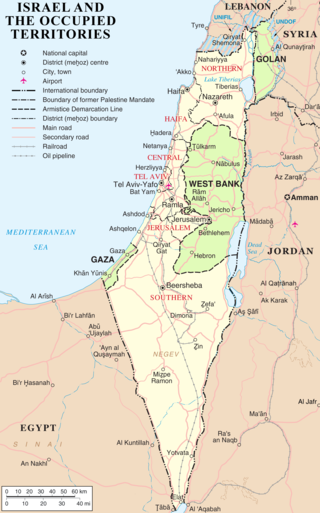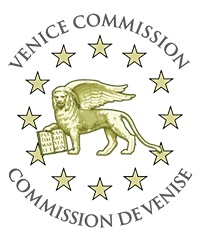Related Research Articles

Human rights are moral principles or norms for certain standards of human behaviour and are regularly protected as substantive rights in substantive law, municipal and international law. They are commonly understood as inalienable, fundamental rights "to which a person is inherently entitled simply because she or he is a human being" and which are "inherent in all human beings", regardless of their age, ethnic origin, location, language, religion, ethnicity, or any other status. They are applicable everywhere and at every time in the sense of being universal, and they are egalitarian in the sense of being the same for everyone. They are regarded as requiring empathy and the rule of law and imposing an obligation on persons to respect the human rights of others, and it is generally considered that they should not be taken away except as a result of due process based on specific circumstances.
International judicial institutions can be divided into courts, arbitral tribunals and quasi-judicial institutions. Courts are permanent bodies, with near the same composition for each case. Arbitral tribunals, by contrast, are constituted anew for each case. Both courts and arbitral tribunals can make binding decisions. Quasi-judicial institutions, by contrast, make rulings on cases, but these rulings are not in themselves legally binding; the main example is the individual complaints mechanisms available under the various UN human rights treaties.

The European Court of Human Rights (ECtHR), also known as the Strasbourg Court, is an international court of the Council of Europe which interprets the European Convention on Human Rights (ECHR). The court hears applications alleging that a contracting state has breached one or more of the human rights enumerated in the convention or its optional protocols to which a member state is a party. The court is based in Strasbourg, France.
The international community is a term used in geopolitics and international relations to refer to a broad group of people and governments of the world.
International human rights law (IHRL) is the body of international law designed to promote human rights on social, regional, and domestic levels. As a form of international law, international human rights law are primarily made up of treaties, agreements between sovereign states intended to have binding legal effect between the parties that have agreed to them; and customary international law. Other international human rights instruments, while not legally binding, contribute to the implementation, understanding and development of international human rights law and have been recognized as a source of political obligation.
An amicus curiae is an individual or organization that is not a party to a legal case, but that is permitted to assist a court by offering information, expertise, or insight that has a bearing on the issues in the case. Whether an amicus brief will be considered is typically under the court's discretion. The phrase is legal Latin and the origin of the term has been dated to 1605–1615. The scope of amici curiae is generally found in the cases where broad public interests are involved and concerns regarding civil rights are in question.
The Inter-American Commission on Human Rights is an autonomous organ of the Organization of American States (OAS).

The Inter-American Court of Human Rights is an international court based in San José, Costa Rica. Together with the Inter-American Commission on Human Rights, it was formed by the American Convention on Human Rights, a human rights treaty ratified by members of the Organization of American States (OAS).
A fair trial is a trial which is "conducted fairly, justly, and with procedural regularity by an impartial judge". Various rights associated with a fair trial are explicitly proclaimed in Article 10 of the Universal Declaration of Human Rights, the Fourth, Fifth, Sixth, Seventh, and Fourteenth Amendments to the United States Constitution, and Article 6 of the European Convention of Human Rights, in addition to numerous other constitutions and declarations throughout the world. There is no binding international law that defines what is not a fair trial; for example, the right to a jury trial and other important procedures vary from nation to nation.

Israel has occupied the Palestinian territories and the Golan Heights since the Six-Day War of 1967. It previously occupied the Sinai Peninsula and southern Lebanon as well. Prior to Israel's victory in the Six-Day War, occupation of the Palestinian territories was split between Egypt and Jordan, with the former having occupied the Gaza Strip and the latter having annexed the West Bank; the Sinai Peninsula and the Golan Heights were under the sovereignty of Egypt and Syria, respectively. The first conjoined usage of the terms "occupied" and "territories" with regard to Israel was in United Nations Security Council Resolution 242, which was drafted in the aftermath of the Six-Day War and called for: "the establishment of a just and lasting peace in the Middle East" to be achieved by "the application of both the following principles: ... Withdrawal of Israeli armed forces from territories occupied in the recent conflict ... Termination of all claims or states of belligerency and respect for and acknowledgment of the sovereignty, territorial integrity and political independence of every State in the area and their right to live in peace within secure and recognized boundaries free from threats or acts of force."

The Venice Commission, officially European Commission for Democracy through Law, is an advisory body of the Council of Europe, composed of independent experts in the field of constitutional law. It was created in 1990 after the fall of the Berlin Wall, at a time of urgent need for constitutional assistance in Central and Eastern Europe.
International law is the set of rules, norms, and standards generally recognized as binding between states. It establishes norms for states across a broad range of domains, including war and diplomacy, economic relations, and human rights. International law differs from state-based domestic legal systems in that it is primarily, though not exclusively, applicable to states, rather than to individuals, and operates largely through consent, since there is no universally accepted authority to enforce it upon sovereign states. States may choose to not abide by international law, and even to breach a treaty but such violations, particularly of peremptory norms, can be met with disapproval by others and in some cases coercive action ranging from diplomatic and economic sanctions to war.

Law is a set of rules that are created and are enforceable by social or governmental institutions to regulate behavior, with its precise definition a matter of longstanding debate. It has been variously described as a science and as the art of justice. State-enforced laws can be made by a group legislature or by a single legislator, resulting in statutes; by the executive through decrees and regulations; or established by judges through precedent, usually in common law jurisdictions. Private individuals may create legally binding contracts, including arbitration agreements that adopt alternative ways of resolving disputes to standard court litigation. The creation of laws themselves may be influenced by a constitution, written or tacit, and the rights encoded therein. The law shapes politics, economics, history and society in various ways and also serves as a mediator of relations between people.

Iura novit curia is a Latin legal maxim expressing the principle that "the court knows the law", i.e., that the parties to a legal dispute do not need to plead or prove the law that applies to their case. The maxim is sometimes quoted as jura novit curia, iura noscit curia, curia iura novit, curia novit legem or variants thereof.

Regional human rights regimes are relatively independently coherent human rights sub-regimes that are nested within the larger frame work of International human rights practice. Three principal regional human rights instruments can be identified, the African Charter on Human and Peoples' Rights, the American Convention on Human Rights and the European Convention on Human Rights.

Monica Feria Tinta is a British/Peruvian barrister, a specialist in public international law, at the Bar of England & Wales. She practises from Twenty Essex, London.
Cesare P.R. Romano, is an Italian and American international law scholar, known as an authority on international law, international courts, and international human rights. He is a Professor of Law at Loyola Law School Los Angeles.
In September 1967, Denmark, Norway, Sweden and the Netherlands brought the Greek case to the European Commission of Human Rights, alleging violations of the European Convention of Human Rights (ECHR) by the Greek junta, which had taken power earlier that year. In 1969, the Commission found serious violations, including torture; the junta reacted by withdrawing from the Council of Europe. The case received significant press coverage and was "one of the most famous cases in the Convention's history", according to legal scholar Ed Bates.
"Necessary in a democratic society" is a test found in Articles 8–11 of the European Convention on Human Rights, which provides that the state may impose restrictions of these rights only if such restrictions are "necessary in a democratic society" and proportional to the legitimate aims enumerated in each article. According to the Council of Europe's handbook on the subject, the phrase is "arguably one of the most important clauses in the entire Convention". Indeed, the Court has itself written that "the concept of a democratic society ... prevails throughout the Convention". The purpose of making such claims justiciable is to ensure that the restriction is actually necessary, rather than enacted for political expediency, which is not allowed. Articles 8–11 of the convention are those that protect right to family life, freedom of religion, freedom of speech, and freedom of association respectively. Along with the other tests which are applied to these articles, the restrictions on Articles 8–11 have been described as "vast limitations", in contrast to American law which recognizes nearly unlimited right to freedom of speech under the First Amendment.

Right to truth is the right, in the case of grave violations of human rights, for the victims and their families or societies to have access to the truth of what happened. The right to truth is closely related to, but distinct from, the state obligation to investigate and prosecute serious state violations of human rights. Right to truth is a form of victims' rights; it is especially relevant to transitional justice in dealing with past abuses of human rights. In 2006, Yasmin Naqvi concluded that the right to truth "stands somewhere on the threshold of a legal norm and a narrative device ... somewhere above a good argument and somewhere below a clear legal rule".
References
- ↑ Keller, Helen; Forowicz, Magdalena; Engi, Lorenz (2 September 2010). Friendly Settlements Before the European Court of Human Rights: Theory and Practice. Oxford University Press. p. 57. ISBN 978-0-19-960097-7.
- ↑ Hudson, Manley O. (1932). "The Friendly Settlement of Economic Disputes Between States". American Journal of International Law. 26 (2): 353–357. doi:10.2307/2189360. JSTOR 2189360.
- ↑ "Friendly Settlement Proceedings of the Inter-American Commission on Human Rights". Organization of American States . Retrieved 2020-09-10.
- ↑ Van Dijk, Pieter; Van Hoof, Godefridus J. H. (3 June 1998). Theory and Practice of the European Convention on Human Rights. Martinus Nijhoff. p. 179. ISBN 978-90-411-0598-1.